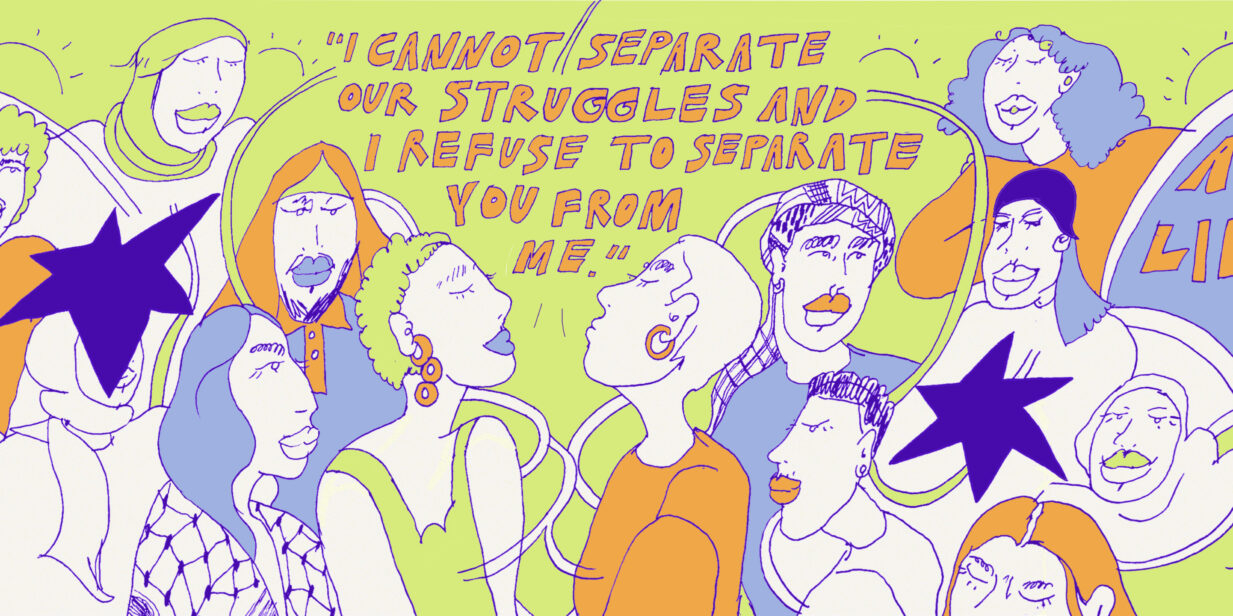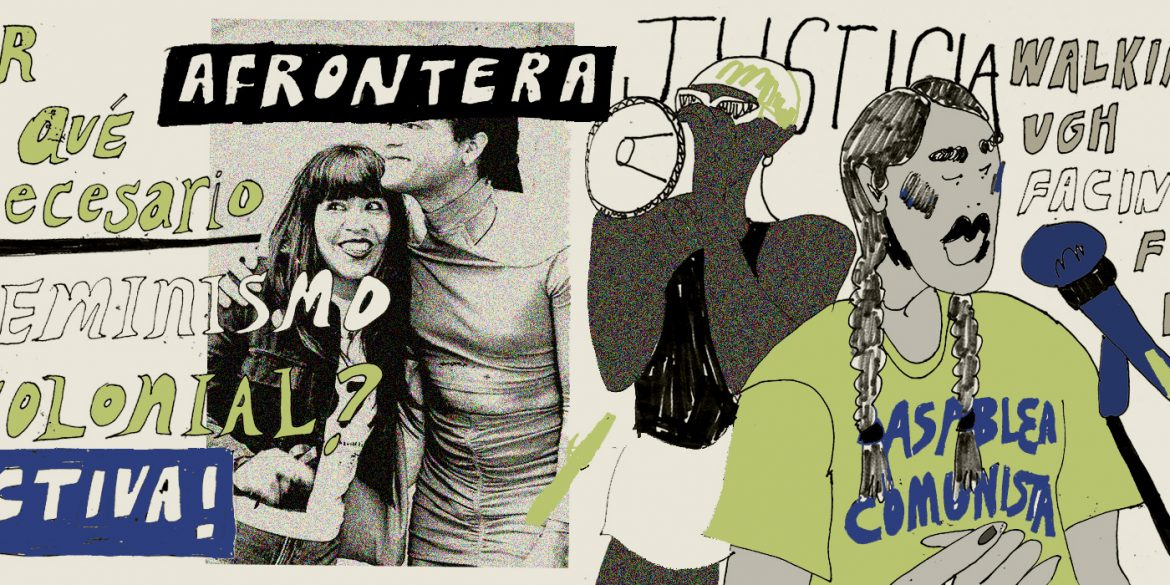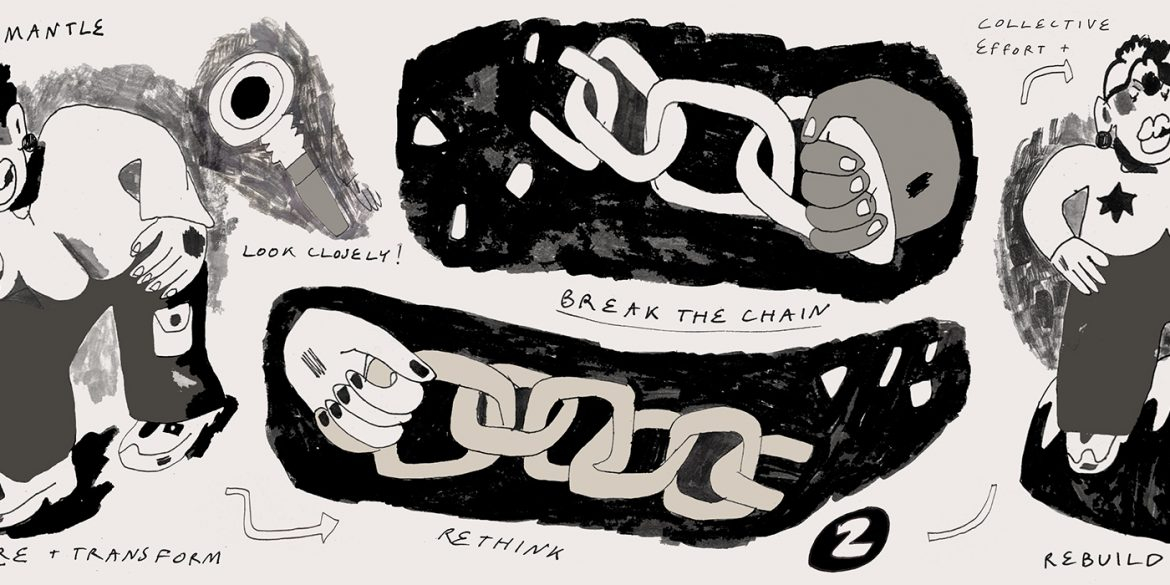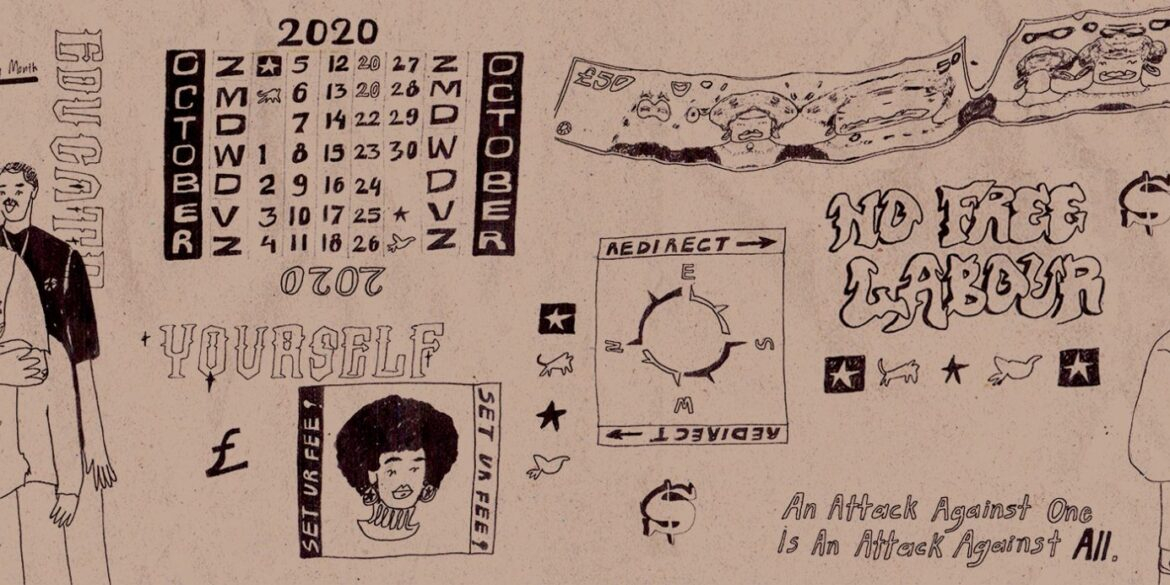JoinedJuly 13, 2020
Articles13
Luci Pina is an image maker and illustrator based in Leeds, UK. With a dreamy and sentimental approach to image making, her practice tends to follow personal narratives in response to text and poetry - usually a visual exploration of image, type and drawing. Along personal narratives, she enjoys making research led responses to black culture; with energy, intention and a conscious and loving consideration for the politics of representation.
In conversation with Amit Lahav about empathy, migration stories and his play ‘Kin’
A. Kwizera and Luci Pina
In conversation with Jimi Famurewa on 'Settlers: Journeys through the Food, Faith and Culture of Black African London'
Sofia Akel and Luci Pina
Everything you need to know about Reproductive Justice, the approaches of the Reproductive Justice Framework and how the movement is evolving
Delving into The Intersectional Environmentalist with Leah Thomas
On decolonisation, mutual aid and resistance through community building in Mexico
In conversation with Deesha Philyaw about sex, sexuality and Black women’s role in the fight for reproductive justice
The anti-racist educator invites us all to reimagine education
Why police will never be the answer to gendered violence
When I first hop on a Zoom call with adrienne maree brown – late afternoon their time, late night mine – I am brimming with energy. I’ve just finished reading their second book, Pleasure Activism: The Politics of Feeling Good, and I’m set for a lively, animated discussion about eroticism,...
The sharp rise of the Black Lives Matter movement earlier this year has made anti-Black racism an increasingly highlighted issue. The death of George Floyd, an American man strangled to death under a white police officer’s knee has become a global symbol of Black oppression. George Floyd’s death is not...
The UK’s first Black Month was celebrated in October of 1987. Prompted by the growing shame among Black children of their African identities and ancestry, Ghanaian born Akyaaba Addai Sebo devised a series of events to challenge the growing identity crisis among the Black British youth. 2020 marks the 33rd...













